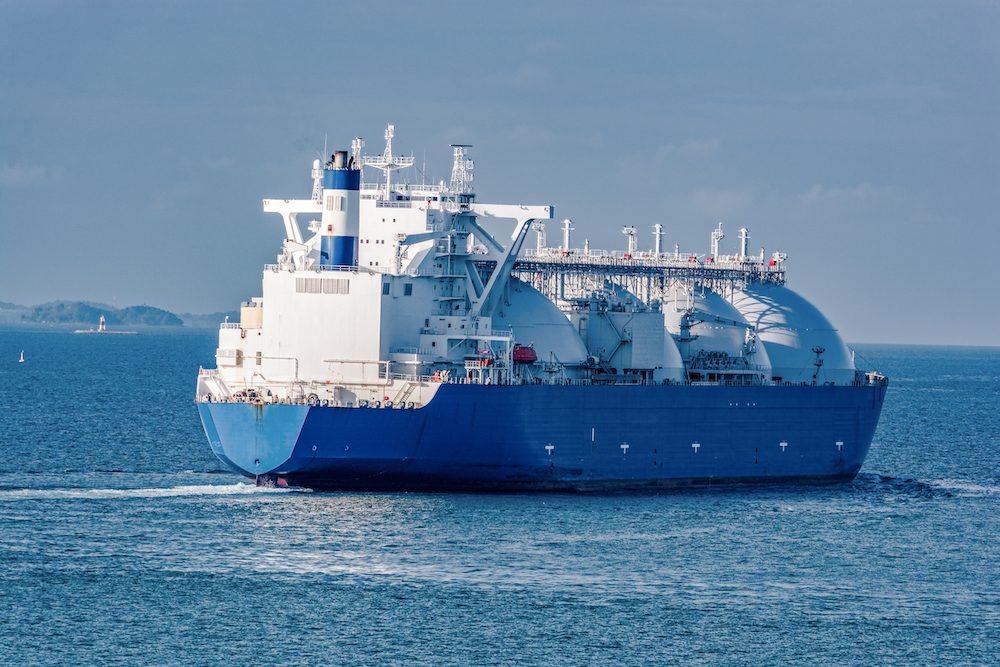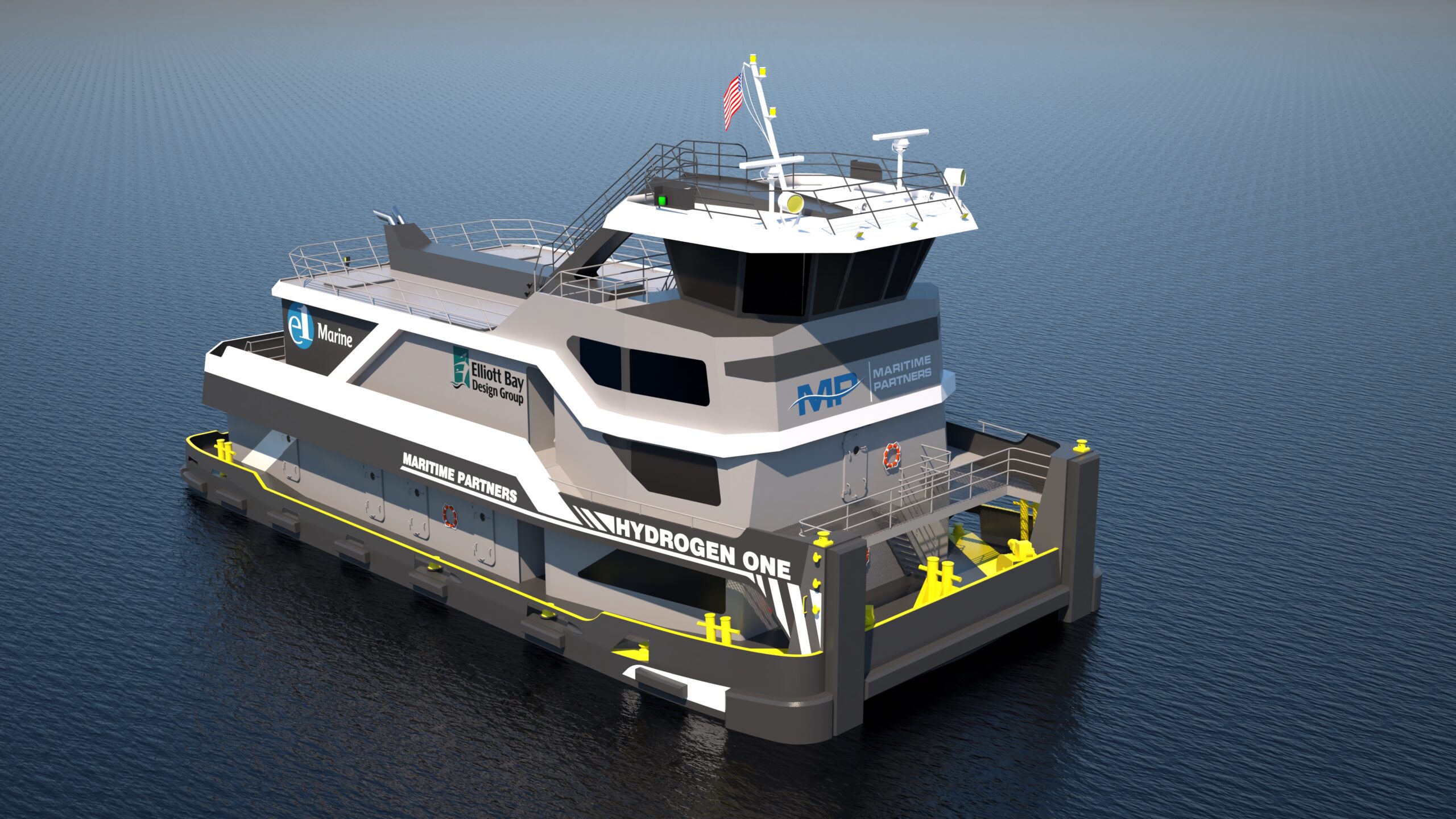Photo: By Igor Grochev / Shutterstock
By Naureen S. Malik (Bloomberg) — China is threatening to impose a 25 percent tariff on imports of U.S. liquefied natural gas, potentially a major blow to an emerging American business.
It’s the first time the fuel has been ensnared by the trade war, coming as part of a $60 billion response to a Trump administration plan to impose more levies. The move adds new pressure on the U.S. industry, which is competing with Russia, Australia and Qatar for market share in China as the Asian giant moves to reduce its use of smog-inducing coal.
Billions of dollars may hang in the balance. Cheniere Energy Inc., Tellurian Inc. and other LNG developers have courted utilities and state-backed companies in China to justify building more terminals to ship the super-chilled gas abroad. Cheniere and Tellurian shares slid on the report.
“At least in the short term any Chinese buyer looking for long-term supply would have to drag their feet on signing a U.S. contract,” Jason Feer, head of business intelligence at Poten & Partners Inc. in Houston, said by telephone.
Cheniere, which began exporting LNG in 2016, said in a statement that it does “not view tariffs as productive.”
The Not-So-Surprising Commodity Excluded from China’s Tariff List
The company “continues to see China as an important growth market and LNG as a ‘win-win’ between the United States and China,” spokesman Eben Burnham-Snyder said by email.
China trails only Mexico and South Korea among the biggest buyers of U.S. LNG. It accounted for 13 percent of the exports from Cheniere’s Sabine Pass terminal in Louisiana as of mid-June, based on ship-tracking data compiled by Bloomberg. The Houston-based company dropped as much as 7.7 percent after the report, the biggest one-day percentage decline since 2016, while Tellurian slid as much as 6.7 percent.
Charif Souki, Tellurian’s chairman, downplayed the threat in an email, saying, “American gas doesn’t come with a ‘Made in America’ label on the molecules. This will not affect the trade, but will simply make gas more expensive to Chinese consumers.”
Liquefied Natural Gas Ltd., which is developing an export terminal in Louisiana, said it will continue to work with Chinese buyers despite the potential for tariffs. “Chinese buyers and U.S. exporters want this resolved,” Greg Vesey, the company’s chief executive officer, said in an emailed statement. “Maybe now this gets everyone to the negotiating table to find a mutually beneficial solution.”
Earlier this year, China emerged as the world’s biggest gas importer, topping Japan. If the tariffs are implemented, China could increasingly turn to Australia and Qatar, the world’s two biggest LNG suppliers, said Warren Patterson, commodity strategist for ING Bank NV. At the same time, Russia plans to begin pumping gas to China through its newly-built 2,500-mile (4,000 kilometer) Power of Siberia pipeline by the end of 2019.
U.S. Shale Producers Warn Chinese Tariffs Would Hit Energy Exports
Cheniere already has made inroads in China. With the country’s traditional suppliers in Central Asia unable to keep up with demand during the recent winter, the U.S. exporter moved quickly to help fill the gap.
Since 2016, when its Sabine Pass export terminal opened in Louisiana, Cheniere has shipped about 50 supertankers filled with the super-chilled fuel to China as of the end of June, with the majority of it moving after the cold weather kicked in.
ING’s Patterson said he was “quite surprised” to see LNG show up on China’s list.
“Given the transition we are seeing in China, with a move away from coal towards natural gas, I would have thought that the government would have wanted to ensure adequate supply,” Patterson said in an email.
Should the tariffs go through, they’ll reshuffle spot trading by driving some U.S. cargoes to Europe and pushing European cargoes to China, said David Ledesma, an energy consultant at South-Court Ltd.
Read More on LNG:
The tariff would raise the cost of delivering U.S. LNG by about $2 to $9.50 per million British thermal units, he said by phone. Current spot prices into Northeast Asia were $9.85 per million Btu after climbing as high as $11.40 this past winter.
Gas exports overall to China jumped 17 percent last year to 92 billion cubic meters, and they’re poised to hit 200 billion by 2025, according to Massimo Di Odoardo, vice president of global gas and LNG at Wood Mackenzie Ltd. in London.
The Trump administration’s agenda for energy dominance “will cease to exist if one of the largest energy markets in the world is preemptively placing tariffs on LNG,” Charlie Riedl, executive director of the Center for Liquefied Natural Gas, a Washington-based industry group, said in an emailed statement.
© 2018 Bloomberg L.P

 Join The Club
Join The Club











